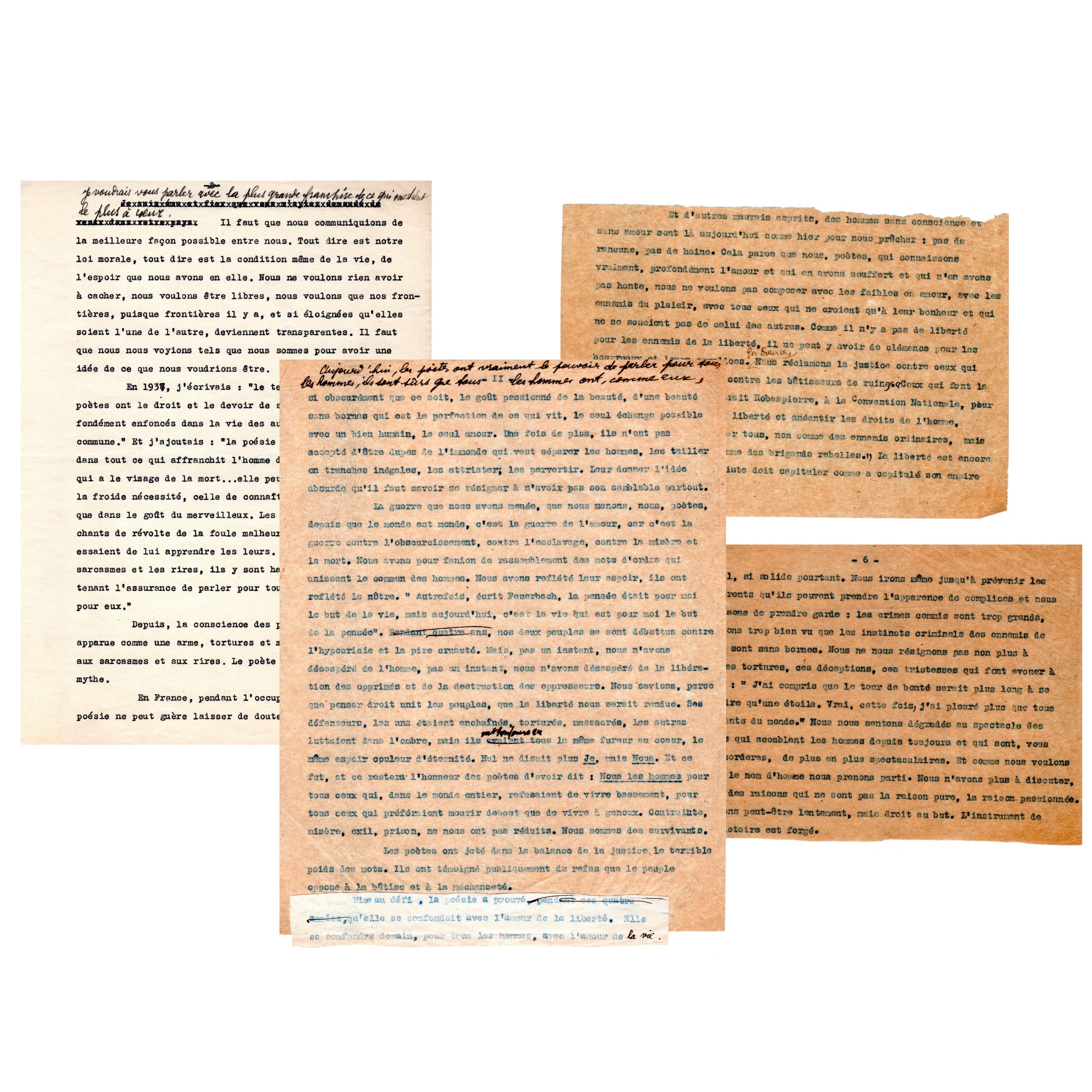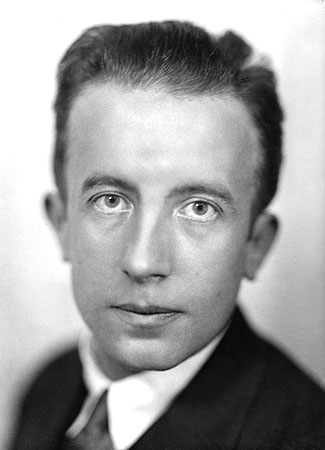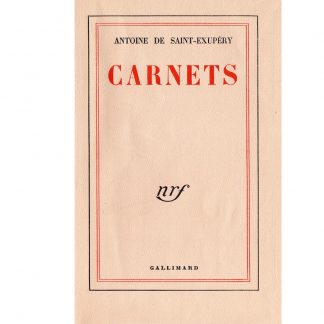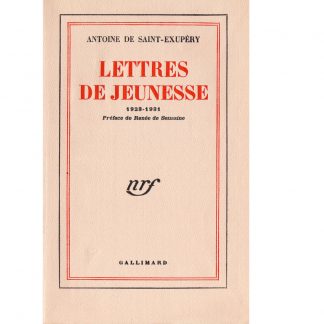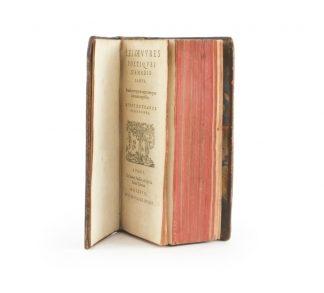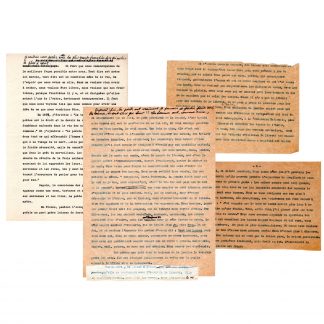Description
TAPUSCRIT WITH AUTOGRAPHIC CORRECTIONS by Paul Éluard a major address on the role of the poet during and after the Second World War:
"I'd like to talk to you as frankly as possible about what's closest to my heart.
We need to communicate with each other in the best possible way. Telling all is our moral law, telling all is the very condition of life, of the hope we have in it. We don't want to have anything to hide, we want to be free, we want our borders - because there are borders, however far apart they may be - to become transparent. We need to see ourselves as we are if we are to have a clear vision of ourselves.
idea of what we would like to be.[...] With the poet's conscience now clearly seen as a weapon, torture and death have replaced sarcasm and laughter. The murdered poet is no longer a myth.
In France, during the Occupation, the meaning of poetry left little doubt as to its purpose:
Today, poets really do have the power to speak with all men, they are sure that all have, like them, however obscurely, a passionate taste for beauty, a boundless beauty that is the perfection of all that lives, the only possible exchange with a human good, the only love. Once again, they have not agreed to be fooled by the filth that wants to separate people, to cut them into unequal slices, to sadden them, to pervert them. To give them the absurd idea that you have to resign yourself to not having people like you everywhere.
The war that we poets have waged and are waging since the world began is the war of love, because it is the war against slavery, against misery and death. We have as our pennant the rallying words that unite the common people. We have reflected their hope, they have reflected ours. In the past," wrote Feuerbach, "thought was for me the goal of life, but today it is life that is for me the goal of thought. Both our peoples have struggled against hypocrisy and the worst cruelty. But never for a moment did we despair of mankind, never for a moment did we despair of the liberation of the oppressed and the destruction of the oppressors. We knew, because thinking right unites peoples, that freedom would be restored to us. Some of its defenders were chained up, tortured and massacred, others fought in the shadows, but they always had the same fury in their hearts, the same hope of eternity. No longer did they say I, but we. And it was and will remain the honour of poets to have said: We the men for all those throughout the world who refused to live in lowlifes, for all those who preferred to die on their feet than to live on their knees. Constraint, misery, exile and prison have not destroyed us. We are survivors.
[...] We feel degraded at the sight of the horrors that have plagued mankind since time immemorial and which are, you will agree, increasingly spectacular. And because we want to deserve the name of man, we take sides. We no longer have to discuss, to weigh up reasons that are not pure reason, passionate reason. We may go slowly, but we will go straight to the point. The instrument of our emptying is forged. "
Absent from Poetry found [and texts] published by La Pléiade.

